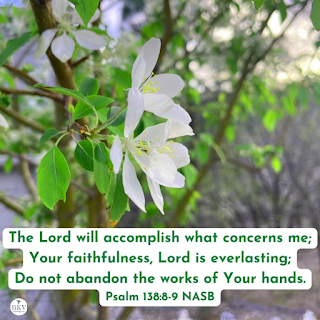Edie Melson's Blog, page 126
May 17, 2022
Three Indispensable Keys to Writing Bible Studies

by Katy Kauffman @KatyKauffman28
A desire to write Bible studies comes from deep within. The desire to share God’s truth, to show how it’s relevant to life today. The desire to help people find more hope, more freedom, more joy. We write because we know all this is found in God and we want other people to find it in Him too.
But passion to write Bible studies isn’t enough—we need hard work. Like learning the craft of writing. Studying our Bible passages well enough so we can explain them. Forming application of Scripture that’s rich with insight and meaning for our target audience. Adding stories and illustrations for reinforcement. Forming reflection and discussion questions that go deep but aren’t too intrusive.
When I first started teaching women’s Bible studies, I wanted the name of “teacher,” but the hard work that went with it? I wanted to love on women and to share the Word with them, but it was hard for me to sit still, plan a lesson, do extensive study, and be prepared. On time. What motivated me to change, was a desire to honor God and share the best that I possibly could. Then the extra studying became a delight. (I didn’t know back then that I’d become a writer. A whole lot more sitting.)
3 Keys We Can’t Write Without
I’ve discovered three keys that unlock the door to writing with relevance and richness, with personality and power. They also unlock the heavy gate of writer’s block and allow God’s creativity to flood our minds and hearts as we seek to share His Word with others.
1. Maintaining a vibrant relationship with God
This doesn’t mean we can’t write when we’re in a dry spell, but it will be harder. Have you found that to be true? When my heart was depressed about something I saw in society and I tried to write about it, it didn’t go well. But when I focused on what God and believers can do to make society a better place, powerful writing erupted.
Focusing on the glories of knowing God and flourishing in our relationship with Him, is key to our writing. Even if we’re going through a hard time, if we find what we need in God, if we see Him as our sufficiency and lifeline, it will show up in our writing. If we write from a place of “God is my world, and I don’t know how it will all turn out but I love and trust Him,” our writing will have more “oomph.” More punch, zip, and wow.
Vibrant writing can come from the time we spend with God in Bible study and prayer and having a “with Him” mindset all day long.
2. Knowing our topic from the inside out
If my writing ever sounds superficial to me, I know that I wasn’t “in” my topic. I didn’t study it enough, or swim in it enough, to really know it.
We need to dive into the topics we write about. We need Bible study tools that help us to dig deep into Scripture as we look for answers to life’s challenges. We need to dive into the depth of our felt need. What need are we addressing that our target audience faces? What question are we trying to solve? What problem are we giving a solution for? How does this Bible passage help us?
And we build the contrast. This is what it feels like to struggle with this problem. These are the challenges we face, and there’s no easy fix for them. But this is what God’s Word says about the challenges, and this is how He has helped me. If you practice this strategy for victory, this is the freedom, relief, or healing that God can work in your life.
Knowing our topic from the inside out, will build up our credibility to write about the topic, give us a heart connection with the reader, and offer a solution for a challenge they need to conquer. We will offer unique insights and meaningful steps to victory our readers aren’t likely to forget.
3. Working with God until the writing is His version of “done”
Has God ever brought your focus again and again to a piece of writing that you thought was finished? He has for me. That’s His gentle way of saying, “It’s not done yet.”
If God isn’t letting us go from working on a project, the best thing is to stick with it. We not only discover exactly what He wants to tell our readers, but we have the adventure of working with Him to understand His Word and share application that He can write on our readers’ hearts. And on our own.
Which of these three keys is your favorite? Tell us in the comments, and may God richly bless your writing adventures with Him. Each one is worth all the time and work we invest.
TWEETABLEThree Indispensable Keys to Writing Bible Studies - tips from @KatyKauffman28 on @EdieMelson (Click to Tweet)
 Katy Kauffman is an award-winning author, an editor of REFRESH BIBLE STUDY MAGAZINE, and a co-founder of LIGHTHOUSE BIBLE STUDIES. She loves connecting with writers and working alongside them in compilations, such as Feed Your Soul with the Word of God, Collection 1 which is a 2020 Selah Awards finalist.
Katy Kauffman is an award-winning author, an editor of REFRESH BIBLE STUDY MAGAZINE, and a co-founder of LIGHTHOUSE BIBLE STUDIES. She loves connecting with writers and working alongside them in compilations, such as Feed Your Soul with the Word of God, Collection 1 which is a 2020 Selah Awards finalist.In addition to online magazines, Katy’s writing can be found at CBN.COM, thoughts-about-God.com, and three blogs on writing. She loves to spend time with family and friends, talk about art and crafts in her group MY ARTSY TRIBE, and tend the garden in the morning sun. She makes her home in a cozy suburb of Atlanta, Georgia. Connect with her at her blog, WINNING THE VICTORY, and on FACEBOOK and TWITTER.
Published on May 17, 2022 22:00
May 16, 2022
10 Things to Say to a Discouraged Writer

by Edie Melson @EdieMelson
Writing often feels like a solitary pursuit. Truthfully, it’s the successful writers who know better than to try to go it alone. Writing in a vacuum is not a good idea—for a lot of reasons. It’s easy to lose perspective and either believe what you’re writing is perfect, or worse, that it’s junk. Having others who share the same struggles make us stronger.
Not to mention the fact that they can talk us down when we’re standing on a writing ledge. Writers can encourage Writers like no one else can. That’s what I want to share today.
Writers Encouraging Writers
1. Success has nothing to do with perfection. So often we try to make our writing perfect. It’s fine to shoot for excellence, but perfect is never going to happen. Quit beating yourself up for not reaching it.
2. Every writer’s journey is different. Writers are masters a comparison. We try to judge our own worth by what others have or have not accomplished. We need to look within, not without when measuring our success.
3. Quit being so hard on yourself. We are our own worst critics. We allow the negative voices in our heads free reign. It’s time to replace those harsh words with kind ones.
4. Courage isn’t the absence of fear. All writers struggle with fear—fear of failure, fear of not being good enough, fear of success. The key is to fight. Don’t give up, don’t give in.
5. Nothing lasts forever. This is even true for writers. There are good days, bad days, great days, and days when we want to give up. Remember that the ups and downs will happen, and this too shall pass.
6. It takes as long as it takes. So often we want success to be a part of a formula. The truth is, like I said on #2, every writer’s journey is different.
7. Sometimes you have to write through the junk to get to the jewels. We all want our writing path to be a continuous, unbroken line of improvement. The truth is far from that. There will be days, weeks, and even months where it’s more of a two steps forward and three steps back.
8. Failure is an option. More often than not it’s also the shortest path to success. Learn from your mistakes, isn’t just a cliché, it’s a truth. Don’t beat yourself up when you fail, learn what you can and keep moving forward.
9. Writing is a journey, not a destination. When we get started on the writing road, we mistake milestones for destinations. It’s easy to think there’ll be a time when we’ve arrived. Truthfully, that never happens. Each achievement is just a gateway to the next part of our writing journey.
10. Nobody writes a perfect first draft. The genius of writing comes in the rewriting. Don’t let a mediocre start keep you from finishing strong.
These are some of the things that my writing buddies have said to me when I was standing on a metaphorical ledge, about to jump. I’d love to know what you’d add to the list.
Don’t forget to join the conversation!Blessings,Edie
TWEETABLE10 Things to Say to a Discouraged Writer, tips from @EdieMelson (Click to Tweet)
 Edie Melson is a woman of faith with ink-stained fingers observing life through the lens of her camera. No matter whether she’s talking to writers, entrepreneurs, or readers, her first advice is always “Find your voice, live your story.” As an author, blogger, and speaker she’s encouraged and challenged audiences across the country and around the world. Her numerous books reflect her passion to help others develop the strength of their God-given gifts and apply them to their lives. Connect with her on her website, through Facebook, Twitter, and Instagram.
Edie Melson is a woman of faith with ink-stained fingers observing life through the lens of her camera. No matter whether she’s talking to writers, entrepreneurs, or readers, her first advice is always “Find your voice, live your story.” As an author, blogger, and speaker she’s encouraged and challenged audiences across the country and around the world. Her numerous books reflect her passion to help others develop the strength of their God-given gifts and apply them to their lives. Connect with her on her website, through Facebook, Twitter, and Instagram.Featured Image: Photo by Ingrid Vasconcelos on Unsplash
Published on May 16, 2022 22:00
May 15, 2022
Develop Beneficial Relationships for Media Marketing

by Karen Whiting @KarenHWhiting
One of my greatest treasures as a writer are the relationships I’ve developed. Many have blessed me with helping my marketing. The purpose of networking is to exchange information, advice, and referrals that assist in attaining career goals. Exchanging implies mutually beneficial and that’s what we should strive for in building the business relationships. This includes relationships with media professionals.
Tap into the Power of Referrals
I realized how much referrals meant when I appeared for one of my first television interviews, a spot I secured through Don Otis, a publicist my publisher had hired for one of my first books. I chatted with another guest and discovered she produced a show and helped me become a guest on her station. On that station, the host said she really wanted to introduce me to her friend Dorothy Spaulding who had a station in another area of the same state. The producer introduced me to the producer at another station on which I became a repeat guest and have been on many times over the years. I try to always send written thanks to media hosts to build those relationships. It surprised me when one host I know mentioned that in nine months of guests she only received three thank you notes.
Once I contacted Dorothy and came on her show we hit it off. I’ve been a guest many times. Beyond that, when she has seen me at the National Religious Broadcasters Conference (NRB) she has graciously hugged me and then taken me around to meet her friends in the industry who host or produce other shows. Even this year she introduced me to several people, and I’ve already been a guest on shows that her friends host.
Get Started
How can an author get start to build more relationships to create such great networking? It starts with one opportunity. For media networking, you may hire a publicist, connect with a friend who has a podcast, or pitch at NRB with an elevator pitch, a press kit, and a copy of your book you want to promote.
If you attend a show like NRBB, see what sessions focus on networking, such as a meet and greet party. The NRB has an evening one where it is easy to move around and introduce yourself, ask questions, and exchange business cards. I always make great connections at these types of events. I also meet people that I realize I need to connect with people in my network and I do that too. I follow up with emailing the people who gave me their cards to start a conversation. Getting to know one another is important in building a relationship. The benefits for marketing can come later.
After you are on the show, be sure to send a thank-you card to the host. Suggest another guest too. I received an email today from one TV producer asking me to recommend a guest for their show. Both authors and hosts want referrals! I sent a few of my top recommendations. Again, networking is beneficial to all parties and often a multiple connected relationship.
Build Your Media Network
Build a database of shows. Start with ones in your area where you can help with a telethon and meet people. Add in ones where you have been a guest. Add ones you dream of being on as a guest. For each one, include the show name, contacts person, host, address, and phone number plus any show notes. Notes may include the background colors of the set and the style of clothing worn by the host, so you can choose the right outfit to wear. It may also include the host’s favorite topics and audience demographics.
When you have a new book or new topic to talk about, look through the database and contact the people who will be most interested in the topic. Send your best pitch where you share the benefits for the audience.
The Blessings of Connections
Media networking starts a wonderful journey to meet many people in broadcast and discover the heart each one has for their audience and mission of their show. It’s much more than simply promoting a book. It’s being part of a larger vision as Christians to reach people who need great messages.
TWEETABLEDevelop Beneficial Relationships for Media Marketing - tips from @KarenHWhiting on @EdieMelson (Click to Tweet)
 Karen Whiting (WWW.KARENWHITING.COM) is an international speaker, former television host of Puppets on Parade, certified writing and marketing coach, and award-winning author of twenty-seven books for women, children, and families. Her newest book, The Gift of Bread: Recipes for the Heart and the Table reflects her passion for bread and growing up helping at her grandparent’s restaurant. Check out her newest book Growing a Mother’s Heart: Devotions of Faith, Hope, and Love from Mothers Past, Present, and Future. It's full of heartwarming and teary-eyed stories of moms.
Karen Whiting (WWW.KARENWHITING.COM) is an international speaker, former television host of Puppets on Parade, certified writing and marketing coach, and award-winning author of twenty-seven books for women, children, and families. Her newest book, The Gift of Bread: Recipes for the Heart and the Table reflects her passion for bread and growing up helping at her grandparent’s restaurant. Check out her newest book Growing a Mother’s Heart: Devotions of Faith, Hope, and Love from Mothers Past, Present, and Future. It's full of heartwarming and teary-eyed stories of moms.Karen has a heart to grow tomorrow’s wholesome families today. She has written more than eight hundred articles for more than sixty publications and loves to let creativity splash over the pages of what she writes. She writes for Crosswalk. Connect with Karen on Twitter @KarenHWhiting Pinterest KarenWhiting FB KarenHWhiting.
Featured Image: Photo by LinkedIn Sales Solutions on Unsplash
Published on May 15, 2022 22:00
May 14, 2022
How to Guard Your Writer's Voice

by Tammy Karasek @TickledPinkTam
As writers, we’re told to write in our own personal voice. As a newbie, I never quite understood what that meant, even though I shook my head and replied with an okay each time. In case you’re reading this and aren’t sure what is a writer’s voice, here’s a general definition:
The writer’s voice is the style usage of vocabulary, point of view, tone and syntax (arrangement of words to create well-formed sentences) that makes a writer’s words flow in a particular way.
We write and write. We finagle the words and rewrite them trying hard to write what we mean in the best possible way. Yet we know that once we are to the point where we “think” our piece is cleaned up, we need to be wise and have other writers put eyes on it.
Writing partners, critique groups—either in person or online—are a valuable resource to do this. However, in my opinion, you need to find a partner or group that is a positive one. A group where the folks are currently writing, learning and growing themselves. Having a group that follow the basic rules of the industry and/or genre requirements is key. And on the flip side of this, if you are going to participate in the group you need to be doing the same.
Now that you’ve found such a group or partner, what’s next?
Key points to be a great critique participant:Know the rules of the group and follow them.Come with an open-mind and listening ear. Learn discernment on what is a rule and what is opinion.Don’t be defensive, remember sometimes it is just an opinion.Listen or read all of the suggestions and know you are permitted to toss out those that are not what you know to be facts. If several folks suggest something but you still think you are right, don’t argue, go home and do the research—then use the correct answer in your work.
Above are a few guidelines to help you have a successful critique experience. And wouldn’t that be great if this is how all critiques happen? Yeah, it would be. But they’re not always that perfect.
I’m going to tell on myself here, but it’s okay, I can take it. A few years ago, I had a scene that I had worked then taken to one of my groups. They offered their many varied opinions and I went home and obediently corrected everything they’d said. Everything. Once fixed, I took it to another group. Wash, rinse, repeat – I’d do the same thing again—over and over to make it perfect. Go ahead, roll your eyes, it was only one scene, and 1500 words at that. But newbie…sigh.
Then I had a dear friend who was a multi-published, wise and experienced writing teacher hold my hands and look me in the eyes after reading this same piece. She smiled and said, “Where is Tammy in this scene? I no longer hear your voice in here. If your name wouldn’t have been on the top, I wouldn’t have known this was your writing.” I stared for a moment, realizing I didn’t know what she meant. Thankfully, I came to and asked her to explain. First, she told me—without even knowing—she felt I had let too many people see it and give opinions on how my scene should be told. And with that, it was no longer my voice. She went on to explain that the reader should be able to hear the voice of the writer as they read—the identifiable way of how they would speak the story should they be sitting across the table from each other. A good writer puts his or her own mark on how they write.
The lightbulb popped on like the dentist’s spotlight above my head—bright and in my face.
I now knew what she spoke of. I thought of how many changes I’d made and had to agree I, too, had no idea who said this. My friend then said, “just write your story and get it done. Allow others to look at it along the way, but learn to discern what is structure or writing rules and what is another person’s opinion.”
I will admit, as a newbie writer, this was often hard to know the difference. However, I want to encourage you that you can find the answers to suggestions that don’t seem right. We have fabulous teaching available to us from so many places. Go with trusted sources such as those who are published and know the works of the industry. They are out there and many are willing to help bring you along, just ask.
I encourage you to find a group to do this journey of writing with. But I caution you to remember to stay true to your own personal voice in your pieces. Learn to decipher when a suggestion helps your writing become stronger or if it’s just the person who critiqued it changing it to how they would have written it. I promise you will learn to see the difference. Give yourself the permission to disregard the unhelpful comments that will come your way—whether from a writing partner, critique groups, editors or contest judges. In time, you’ll be more aware when critiques are constructive and you should heed the advice of, versus those that offer no value for the writing to be stronger.
I ask … are you in a spot where you feel like your words have been changed enough that you no longer think the submission is even something you would have said? If so, now’s the time, dear writer friend, to take back your voice that’s been stolen from you. Put your voice back into that article, blog post or book. Don’t disregard story structure and grammar rules, but do write the story as if you are telling a friend the story face to face.
With a critique or edit … know the rules and change what’s needed, but never let anyone take away your voice in your work.
Thoughts? Comments? Please jump in on the conversation … The Write Conversation!
TWEETABLEHow to Guard Your Writer's Voice - insight from @TickledPinkTam on @EdieMelson (Click to Tweet)
 Tammy Karasek uses humor and wit to bring joy and hope to every aspect in life. Her past, filled with bullying and criticism from family, drives her passion to encourage and inspire others and give them The Reason to smile. She’s gone from down and defeated to living a “Tickled Pink” life as she believes there’s always a giggle wanting to come out!
Tammy Karasek uses humor and wit to bring joy and hope to every aspect in life. Her past, filled with bullying and criticism from family, drives her passion to encourage and inspire others and give them The Reason to smile. She’s gone from down and defeated to living a “Tickled Pink” life as she believes there’s always a giggle wanting to come out! She’s the Social Media Manager for the Blue Ridge Mountains Christian Writers Conference, Founding President and current Vice-President of ACFW Upstate SC, Founding President of Word Weavers Upstate SC. She’s a writing team member for The Write Conversation Blog, Novel Academy, and MBT Monday Devotions and others. Her work was published in a Divine Moments Compilation Book—Cool-inary Moments. When not writing Women’s Fiction and Rom-Com, she’s The Launch Team Geek helping authors launch their books and a Virtual Assistant for authors.
Published on May 14, 2022 22:00
May 13, 2022
How God’s Word Holds Us Steady in Hard Times

by Beth K. Vogt @BethVogt
The last few weeks have been challenging—so much so that it’s been difficult for me to write. My word count on my various works-in-progress (WIPs)? Basically nil. My creativity? Hovering around non-existent.
The one thing I have done during this time? I’ve leaned into God. Every. Single. Day.
To be honest, some days my faith seems to make no difference to my circumstances. Nothing changes. My troubles are, well, still troublesome.
But then I’m reminded God never changes. (Hebrews 13:8 NIV) He’s also very honest about the reality that in this world we will have trouble and he promises us that he will give us peace. (John 16:33 NIV)
One of the ways God has given me peace during this time of upheaval is through his Word. I’ve relied on a list of “Anchor Verses” I’ve compiled through the years. I’ve read them again and again throughout each day, steadying my thoughts and emotions with the truth. I’ve also added new anchor truths to my list of favorites.
Maybe you’re going through some difficulties right now. I thought I’d share some of the Anchor Verses that have steadied my heart to encourage you. If you don’t need them right now, that’s fine. Tuck them away for later. Or maybe you’ll find a writing friend or family member who needs some reassurance.





TWEETABLEHow God's Word Holds Us Steady in Hard Times - encouragement from @BethVogt on @EdieMelson (Click to Tweet)
 Beth K. Vogt believes God’s best often waits behind the doors marked “Never.” Having authored nine contemporary romance novels and novellas, The Best We’ve Been, the final book in Beth’s Thatcher Sisters Series with Tyndale House Publishers, releasers May 2020. Other books in the women’s fiction series include Things I Never Told You, which won the 2019 AWSA Award for Contemporary Novel of the Year, and Moments We Forget. Beth is a 2016 Christy Award winner, a 2016 ACFW Carol Award winner, and a 2015 RITA® finalist. An established magazine writer and former editor of the leadership magazine for MOPS International, Beth blogs for Learn How to Write a Novel and The Write Conversation and also enjoys speaking to writers group and mentoring other writers. Visit Beth at bethvogt.com.
Beth K. Vogt believes God’s best often waits behind the doors marked “Never.” Having authored nine contemporary romance novels and novellas, The Best We’ve Been, the final book in Beth’s Thatcher Sisters Series with Tyndale House Publishers, releasers May 2020. Other books in the women’s fiction series include Things I Never Told You, which won the 2019 AWSA Award for Contemporary Novel of the Year, and Moments We Forget. Beth is a 2016 Christy Award winner, a 2016 ACFW Carol Award winner, and a 2015 RITA® finalist. An established magazine writer and former editor of the leadership magazine for MOPS International, Beth blogs for Learn How to Write a Novel and The Write Conversation and also enjoys speaking to writers group and mentoring other writers. Visit Beth at bethvogt.com.
Published on May 13, 2022 22:00
May 12, 2022
Tips to Make Valuable Connections at Your Next Writing Conference

by Edie Melson @EdieMelson
If the past couple of years taught us anything, it was how to Zoom.
Meeting together online became normal for a huge part of our population and the writing conference landscape has radically changed because of that. First, because there was no other option. If we wanted to offer a writing conference or attend a writing conference, online was our only option. While we lamented the fact that we couldn’t be together—in person—we also discovered the ease and money-saving value an online conference can offer.
Enter 2022.
This year more and more conferences are back to in-person events. But our in-person skills may be a little rusty. So here are my thoughts on preparing for an in-person writing conference—post-pandemic style.
Before the Conference
1. Cover your attendance in prayer. Anytime we take a step of faith and follow God’s leading we can expect push back from the enemy. It’s critical that we cover our plans with prayer. Here are some things I pray:Prayers for protectionsPrayers for a listening ear to the nudging of the Holy Spirit Prayers asking God to open the doors He wants me to walk through and close the ones that He doesn’t plan for mePrayers for those planning, teaching and organizing the eventPrayers for technology to work—in my home and everywhere else
2. Do your homework. Every conference has a website. Study it. Learn who is coming and what their specialties are. Look at the class offerings. Discover whether or not they have social media accounts—follow them. Do they have a conference blog or an online group? If so subscribe and/or join. Learn everything you can beforehand and you’ll get so much more out of the event once you’re on site.
3. Read the fine print. And under the thought of doing your homework . . . Many conferences offer contests, opportunities for critiques and even mentoring. But each of these opportunities comes with an end date. Mark those dates on your calendar so you don’t miss out. Beyond that, notice how long you’ll have access to the classes and recordings. Don’t let time slip by without taking advantage of these valuable resources.
4. Follow faculty. When you see who’s teaching, investigate them further. If they’re an agent or a publisher, visit their business website. Follow the social media attached to that business. If it’s another kind of industry professional, do the same thing. You can find out all kinds of valuable information with just a little effort.
NOTE: Do not stalk a faculty member. Sending a friend request or following on social media is fine. Private messaging them steps over a line.
5. Prepare Your Own Material. Begin early and make sure you have up-to-date information on your website. Reorder or order business cards. (Here’s a post on Business Cards For Writers ). Polish your one sheet or proposal if you’re pitching.
At the Conference
1. Sign up for appointments with faculty. Many conferences provide the opportunity to meet privately with faculty. Take advantage of this. At our Blue Ridge Mountains Christian Writers Conference we have signups on site. Some conferences offer them early. Do your homework and sign up when they’re available.
2. Make the effort to make connections. For those of us who are introverts this can be tough. But if we begin with simple questions, the connections flow more naturally. I like to ask, “What do you write?” This question takes the focus off me and allows the other person to share about themselves.
3. Keep your business cards handy and give them to people. Don’t just focus on exchanging cares with people higher up on the food chain. Some of your most valuable connections will come from fellow attendees. (Here's a great post on Organizing Business Cards for Marketing )
4. Connect with the people you meet online. As soon after as is possible, look the people you meet up on social media. Follow and friend them. This helps you by adding to your connections and making sure you’re following the “right” person online. It also helps them because you’re fresh on his or her mind and they’re more likely to reciprocate.
5. Take plenty of pictures. I have never —in almost a quarter of a century—regretting taking pictures with others at a conference. I have always regretted NOT taking them.
6. Post the pictures & tag those in them. Go the next step and don’t be a picture hoarder. LOL. Instead, post them on social media and tag the other people in the picture. This is a great way to cement connections.
After the Conference
1. Rest. You are going to be exhausted—mentally and physically. Give yourself time to recover before you jump in. Also realize that Post-Conference Blues are a real thing. It’s only natural to feel down after an event. Watch and plan for this and you won’t be derailed by the emotional fall-out.
2. Follow up with new contacts. When you connect with someone—fellow attendee or faculty—be sure to follow up after the event is over. Solidify the connection through social media or through email (if an email address has been provided).
3. Follow up with what was requested. Less than 30%. That’s the percentage agents and editors see after requesting material at a writing conference. So often we return home and decide not to send something that was requested. Don’t be that person.
4. Edit the work before you send in what was requested. Yes, send it in. But realize the editors and agents aren’t watching their inboxes and waiting for your manuscript. They expect you to take time to apply what you learned at the conference.
5. Re-listen/watch to the workshops that fit your needs. As you’re attending, make a separate list of specific workshops you’d like to listen to again. I’ve found that if I don’t, but the time the conference is over, I’ve forgotten the specifics of which ones I’d wanted to delve into deeper.
Now it’s your turn, what tips would you add to my list and what do you think about online conferences?
Don’t forget to join the conversation!Blessings,Edie
TWEETABLETips to Make Valuable Connections at Your Next #Writing Conference from @EdieMelson (Click to Tweet)
 Edie Melson is a woman of faith with ink-stained fingers observing life through the lens of her camera. No matter whether she’s talking to writers, entrepreneurs, or readers, her first advice is always “Find your voice, live your story.” As an author, blogger, and speaker she’s encouraged and challenged audiences across the country and around the world. Her numerous books reflect her passion to help others develop the strength of their God-given gifts and apply them to their lives. Connect with her on her website, through Facebook, Twitter, and Instagram.
Edie Melson is a woman of faith with ink-stained fingers observing life through the lens of her camera. No matter whether she’s talking to writers, entrepreneurs, or readers, her first advice is always “Find your voice, live your story.” As an author, blogger, and speaker she’s encouraged and challenged audiences across the country and around the world. Her numerous books reflect her passion to help others develop the strength of their God-given gifts and apply them to their lives. Connect with her on her website, through Facebook, Twitter, and Instagram.Featured Image: Photo by Jodie Walton on Unsplash
Published on May 12, 2022 22:00
May 11, 2022
How A Parachute Jump Prepared Me for the Writing Journey

by Julie Lavender @JLavenderWrites
“Arch 1000.” I said the words aloud and pulled my shoulders into an arch while freefalling to the ground.
“Look 1000.” I glanced at the buckle-like housing on my left shoulder that held the fake rip cord. My parachute jumpsuit, slightly large for my frame, flapped in the wind.
“Reach 1000.” I pushed against the wind of an 80 mph fall and reached with my right hand to touch the rip cord.
“Pull.” I simulated a pull, though as a first time parachute jumper, I wouldn’t actually deploy the parachute. That took place from a static line, one end attached to the actual rip cord on my chute and the other end attached to a hook inside the plane.
At that precise moment in my countdown, the line went taught, my rip cord pulled away, and the parachute jerked me into a much slower descent. Finally, my heartbeat slowed to a more reasonable rhythm.
How did I get here? I pondered as the chute billowed out above me.
You let your crazy high-school and college girlfriend talk you into it as a graduation celebration. I smiled as I answered my own question.
Debbie, a friend I’d known for a long time, was always more adventurous than I. She talked me into parachuting, although I’ll admit, I halfheartedly said to her one day, “I think it would be fun to parachute.”
Never give Debbie ideas like that.
The next thing I knew, she’d signed us up for the class about an hour away at a small airport.
We sat through the class on Friday night, passed the written exam, and spent Saturday morning practicing our PLF’s—parachute landing falls—from the back of a pick-up truck.
Just a couple of hours later, we climbed aboard a small plane and left the runway. After releasing the windsock to determine the perfect place to exit the plane, my friend Debbie went first. I was too scared to go. But with a few more circles above the airport, I knew I either had to jump or lose my lunch from airsickness.
When it was my turn, the jumpmaster gave the command.
“Sit in the door.”
I moved to the open doorway and sat on my bottom, with both legs hanging outside the plane.
“Get on the strut.”
I grabbed hold of the wing’s strut and inched, hand by hand in monkey-bar fashion, farther away from the door of the plane. My quivering legs dangled in the air.
When my hands reached their destination, the blue markings of tape that signified my stopping point, I heard the instructor yell, “Go.” I unclenched my hands and let go, falling away from what I knew. I tumbled in the air, immediately starting the countdown we’d practiced over and over.
That’s how I got here.
With my parachute safely deployed above me, no tangled lines, no crossover lines to deflate the chute, I exhaled and took in the beauty around me. Farmers’ fields in various shades of green and gold looked like a handmade patchwork quilt. Streams meandered and flowed, cutting into the earth. Dirt roads and paved ones bordered quilts and split properties. Trees lined the forests at a distance, reaching their limbs in praise to the Creator.
In fact, everything below me screamed praise to the Holy One.
When the site of the ground drew nearer, I touched my knees together, touched my feet together, tucked my chin, and bent my knees slightly. I landed just short of the grass I aimed for, but upon contact, I buckled and side-rolled to absorb the impact of landing.
“We did it,” Debbie screamed as she ran towards me, grasping her parachute bundle in front of her.
“Wasn’t that the most fun we ever had?” I yelled across the runway to her.
We high-fived and hugged and did an unattractive happy dance in our too-big jumpsuits and then waited for our jumpmaster to finish his jump from the plane.
Years later, few activities provide the adrenaline rush of that parachute jump. But each time I send out a new query or manuscript proposal, I think of the similarities of my parachute experience and my writing life.
Lessons on the Writing Journey
1. Sometimes the idea to leap into a writing journey comes as a wild and crazy thought.
2. Friends (and fellow writers) can be the catalyst that encourages you to follow through on that “crazy” idea.
3. A successful writing career most often begins with the proper education, whatever that looks like. It might include classes at a writers’ conference, like the amazing Blue Ridge Mountains Christian Writers Conference that’s just around the corner. It could include online courses, library research, mentorship from another writer, or university credits.
4. Once you’ve taken classes and practiced over and over again, the time comes to get on board and take off! Get busy writing!
5. Under the instruction of an experienced mentor—a writer farther along the path than you, an editor, an agent, a publisher—you can move forward to accomplish whatever writing goal you’re seeking. Sometimes, you might dangle your feet in the shallow end, submitting to wonderful, non-paying or smaller markets, just to “get your feet wet,” so to speak.
6. Many times during the writing journey, the task is arduous and exasperating, and you feel like you’re pushing against the wind, slowly moving hand over hand to reach your goal.
7. Then comes the time when you have to let go and free fall—submitting a manuscript that felt so daunting, sending off the query that has you quivering with fear of rejection, or pitching in person at a conference when every part of your introverted body screams, “Don’t do it.”
8. With the safety net of God’s love and grace and mercy, you can breathe, exhale, and enjoy the beauty of the writing path God’s placed before you. Some projects will launch perfectly and fall into place like a hand stitched, patchwork quilt. Some will meander and take a few turns before succeeding. Some roads will lead nowhere; others will take you on the adventure of a lifetime.
9. Sometimes you hit the mark with precision, executing a writing project with perfection. On other days, no matter how much you prepare and practice, you’ll go off course just slightly. When that happens, a little tuck and roll will get you right back on your feet again!
10. When all is said and done, with writing accomplishments bundled together over the course of a lifetime and that writing journey comes to an end, we can thank the Holy One for the opportunities He gave us and cheer loudly, “Wasn’t that the most fun we ever had?”
TWEETABLEHow A Parachute Jump Prepared Me for the Writing Journey, insight from author @JLavenderWrites on @EdieMelson (Click to Tweet)
 Julie Lavender enjoyed parachuting with her friend, but decided once was enough. She seeks adventure now with family and with each new writing project. Her most recent projects include a new podcast, The Seven, with six amazing writing friends and housed on the Charisma Podcast Network and other podcast platforms and two books: Children’s Bible Stories for Bedtime (Penguin Random House) and 365 Ways to Love Your Child: Turning Little Moments into Lasting Memories (Revell.) She would love to connect with you on social media and julielavenderwrites.com.
Julie Lavender enjoyed parachuting with her friend, but decided once was enough. She seeks adventure now with family and with each new writing project. Her most recent projects include a new podcast, The Seven, with six amazing writing friends and housed on the Charisma Podcast Network and other podcast platforms and two books: Children’s Bible Stories for Bedtime (Penguin Random House) and 365 Ways to Love Your Child: Turning Little Moments into Lasting Memories (Revell.) She would love to connect with you on social media and julielavenderwrites.com.
Published on May 11, 2022 22:00
May 10, 2022
5 Ps to Conquer Writing Deadlines

by Linda Gilden @LindaGilden
Some weeks the writer’s life bring some pretty hefty back-to-back and sometimes overlapping deadlines. Here are a few tips to make the struggling and juggling those writing deadlines a little easier.
5 Tips to Meet Writing Deadlines
PrayMake prayer your first step in meeting every deadline. Take time to ask God’s blessing and direction on every project you undertake. The time you take to talk to Him about what you are working on will be multiplied as you write.
PrioritizeMake a written list or keep it in your head, but make a list. Which projects have the closest deadlines? (Sometimes it comes down to a few hours difference in the deadlines.) Which can be pushed into next week? All are important so be sure you don’t let one fall between the cracks.
PlanAre there any projects that could share research? Even if not, decide what you need to learn, then set aside a specific time for research. Doing it all at one time will make your writing time more efficient. Just be sure to keep good notes as to what information goes with which project. Also, plan some family time in the schedule. Even an hour at dinner with your spouse, playing with the grandchildren, or walking in the garden alone will refresh you and make you more productive.
PartnerNo, I don’t mean look for a coauthor. Writing is not a solo occupation. Your spouse, your family, and others are an important part of what you do. If you have a season of heavy deadlines, discuss it with your family. Ask them to take some of your chores or to cook a meal to free your time time to write. Talk to your close friends and your prayer team and ask them to pray for you during this intense time of writing.
PersevereWhatever you do, don’t let major deadlines weigh you down. Stand strong, work according to the plan you have devised, and don’t give up. Even though you are alone when you write, you have an audience waiting to hear the wisdom of your words. You are making a difference. Your words can change the course of someone’s day.
Now head back to the computer and write the words that will make you a life-changer. Martin Luther said it well. “If you want to change the world, pick up a pen.”
TWEETABLE5 Ps to Conquer Writing Deadlines, tips from author @LindaGilden on @EdieMelson (Click to Tweet)
 Linda Gilden has coauthored 11 books with 5 different coauthors and has #12 and #13 coming out in 2022, adding a new co-author to the list. She loves every one of her coauthors and enjoys collaborating on interesting projects with them. She also has written many books on her own and realizes what a treasure and blessing a good co-author is.
Linda Gilden has coauthored 11 books with 5 different coauthors and has #12 and #13 coming out in 2022, adding a new co-author to the list. She loves every one of her coauthors and enjoys collaborating on interesting projects with them. She also has written many books on her own and realizes what a treasure and blessing a good co-author is.
Published on May 10, 2022 22:00
May 9, 2022
How to Choose Publishing Excellence

by Cindy K. Sproles @CindyDevoted
Since self-publishing came on the scene, the attitude of writers changed. Where we once received a rejection letter, read it, and strived to improve our work—a sense of entitlement seeped into our attitudes. First, when used appropriately, self-publishing is an excellent tool, and I hate to see so many insinuate that it’s not. It isn’t. It’s a tool. And like any tool, the user must learn to use it.
Anyone who knows me hears me continually harping, “Learn the craft. Learn the craft.” Back in the days before self-publishing, that was our only option if we wanted to be published—persistence and learning the craft. We sat through classes where we learned the differences in the types of rejection letters and how to interpret those. If rejection came, it wasn’t because it was rotten work (well…mostly not—there’s an exception to every rule), but our work wasn’t publication-ready.
There were no Word Weavers where writers could gather and get solid useful critiques. Small critique groups formed, and though many were adequate, equally as many were not. Writers attended conferences, practiced, bought writing books, and worked hard to learn the craft. That was the option.
The issue with self-publication came when writers realized they were no longer required to push ahead and make their work the best it could be. They had full control, which meant that their high school English teacher could proof their grammar but still not fix plot, characters, and flow issues. This was not a self-publishing problem. It was and still is an author issue. Good self-publishing companies pushed editorial service, but there was a price, and honestly, writers saw it as a step they could skip. After all, those first-time authors were convinced their first-time work was great as it was. Bottom line, despite the efforts of solid self-pubs to get writers to accept editorial services, the fact was, authors were paying the bill and ultimately had full control. In essence, it was their choice.
As the publishing industry tightened its fists after our country’s 2008 financial crisis, writers could no longer mail a proposal and manuscript to a publisher. Agents became the gatekeepers to help filter viable work from work that needed more help. The author’s attitudes changed from working to earn a traditionally published book contract to “I’ll just do it myself.” The bandwagon was loaded with self-publishing sharks, out to land naive author’s money. Many of those less reputable companies have since bit the dust. Authors began to become a bit savvier with how self-publishing worked, and many learned enough to do it themselves. Either way, the risks still lay solely on the author.
Writers still vie for the few traditional slots available, but many are not willing to persevere much less consider there may be a solid reason why they cannot land a traditional contract. Let’s look at some of these attitudes and attempt to resolve them.
4 Ways to Choose Excellence in Publishing
1. Have you learned to accept help? When a rejection letter arrives, it means the work just begins. It’s time to seek the help of professional editors to help you work through outstanding issues that block a contract. Just because a writer types THE END on a manuscript does not mean the book is ready for publication. Everyone has a different work ethic. I never send a completed manuscript to my agent until I’ve run it through a good content editor. Do you pay for this service? Absolutely. Is it cheap—not always. Content edits can run an author from .02 per word to $2000 (or more, depending on the in-depth work needed).
How do I justify the costs when I am not guaranteed a contract? Well, the easiest answer is this. I’m making a business decision. My writing is my career, and in any profession, you must spend money to earn money. This is part of running a business. We are commanded by the Father to present our best work, but when our work is well polished, the opportunity for a contract improves significantly. Some writers are gifted to dig deep into the editing of their manuscript with the same eyes they write with, but I am not one of those authors. In fact, few are.
2. Why spend this money when you may not get a contract? Again, in part, it’s a business decision, but it also means you are learning the craft. Let’s face it. There are no guarantees in life—especially in the publishing industry, but you will never go wrong by improving yourself. Here’s an example: A couple of years ago, I hired a content editor who worked through a novel with me. It did not land a contract. Did my content editor fail me? Nope—he didn’t. Was the story bad? Nope, beta readers loved it.
The editor helped me make the novel amazing. In this case, it wasn’t the right time for this particular book. Trends worked against me. Recently, this book came back to light, and guess what? Contract offer. Only you can gauge the worth of the value you invest in yourself. We are never guaranteed a contract, but we can always do our best, and good things come. I have yet to regret spending money to have work content edited upon completion. For me, it’s just smart. Do I recommend this for serious first-time authors? Absolutely.
3. Why not self-publish? Here I say, to each his own. BUT, before you self-publish, check these reasons that do NOT lead to excellence:Why are you in a hurry? (And don’t believe the lie that God wants it published now. Trust me, if God wanted it published NOW, you’d have a contract from every publisher under the sun.) Self-publishing wouldn’t be a contender.Have you examined why the book may not have contracted? i.e., trend, loaded market writing level, correct agent to represent what you write? Do you have the funds to absorb the cost and the platform to sell the books?Is your attitude right?
These days authors have to have a large platform, even for traditional publishers (and publishers have more funds to dump into marketing and prime real estate for what brick and mortars are left). If you do not have this foundation in place, you will shoulder the full cost of publishing and carry the entire burden of selling the book alone. Well over the 90% mark of self-published books sell less than 200 copies (this does not include those self-published books done by large, reputable publishers who do set aside a little money for marketing). Even at that, many authors must pay for a higher-end marketing package.
4. Why is it so hard? That’s a question we’ve all been asking for years. Anything worth having is worth working for is true, but the fact is that publishers can only publish so many books per year. Hopefully, the books they choose to invest in bring financial gain for the publisher and the author. It still boils down to business decisions, whether you are the author or the publisher.
Sometimes our work is good, really good, yet it still misses the mark. Timing, trends, financial obligations, turnovers—all play into the factor. All we can do is faithfully pray over our work and then offer it back to God. Often, we spend more time trying to do God’s job instead of doing what He asks. He may only ask that you write it, and you may never know why. Be it for now or later, for a group or the person next to you. Your job is to choose to write the best words you can write, then stand behind God and let Him do His part. Sometimes it happens quickly. Other times…not so much. But your gift is instilled for a reason.
Choose to do your best work, and the rewards will come in due time.
TWEETABLEHow to Choose Publishing Excellence, tips from @CindyDevoted on @EdieMelson (Click to Tweet)
 Cindy K. Sproles is an author, speaker, and conference teacher. She is the cofounder of Christian Devotions Ministries and the executive editor for www.christiandevotions.us and www.inspireafire.com. Cindy is the lead managing editor for SonRise Devotionals and also Straight Street Books, both imprints of LPC/Iron Stream Media Publications. She is a mentor with Write Right and the director of the Asheville Christian Writers Conference held each February at the Billy Graham Training Center, the Cove, Asheville, NC. Cindy is a best selling, award winning novelist. Visit Cindy at www.cindysproles.com.
Cindy K. Sproles is an author, speaker, and conference teacher. She is the cofounder of Christian Devotions Ministries and the executive editor for www.christiandevotions.us and www.inspireafire.com. Cindy is the lead managing editor for SonRise Devotionals and also Straight Street Books, both imprints of LPC/Iron Stream Media Publications. She is a mentor with Write Right and the director of the Asheville Christian Writers Conference held each February at the Billy Graham Training Center, the Cove, Asheville, NC. Cindy is a best selling, award winning novelist. Visit Cindy at www.cindysproles.com.
Published on May 09, 2022 22:00
May 8, 2022
3 Ways for Writers Who Speak to Engage the Audience

by Linda Goldfarb @LindaGoldfarb
Are you eager to be remembered for your message and not your mistakes? With more than a thousand engagements in my speaking repertoire, I’ve found three practices extremely helpful as I plan to engage with my audience better.
I love how Father empowers us to empower others with our voices, don't you? If we choose to be personality-wise, pertinent, and punctual when presenting our messages, each audience member will walk away believing we were speaking directly to them. We may even hear, "It's like I've known you forever."
Tips to Engage Your Audience
1. Be a Personality-Wise SpeakerDo you realize to whom you're speaking? When I recognize and talk directly to the personalities in my audience, two tangibles increase—audience retention and my rebooking rate.
As a co-author of the LINKED® Quick Guide to Personalities series, I reference our four dominant personality links when addressing my audience. The first one is the get-it-done Mobilizer, then we have the life-of-the-party Socializer, next is the keep-it-peaceful Stabilizer, and wrapping up our quartet of personality types is the everything-in-order Organizer. By including the easy-to-remember tagline and a story associated with each personality link, heads nod in agreement as individuals recognize themselves and their neighbors quickly. Engaging at this personal level builds instant rapport, resulting in “Linda sees me, and she knows me.”
Our audiences overflow with blends of the Mobilizer, Socializer, Stabilizer, and Organizer personality types . Therefore, to make the most significant impact with our message, it’s best to be personality-wise from the beginning and to include connectors that speak to everyone.
Use these LINKED® personality concepts to maximize your engagement as a speaker.
Mobilizers resonate with check-off boxes. Use bullet points and share concise action steps in your handouts and slide decks.
Socializers retain fun facts. Incorporate unusual props within your message and ask volunteers to use them—no personality test is needed for the individuals who race to the stage to get their pompoms.
Stabilizers relish relaxation. Consider just-because-you-showed-up “prizes” (Umm, don’t name them as such—wink) in the mix with any be-the-first-to options—as this personality tends not to jump up if they can remain seated.
Organizers require time to process. Offer a content outline such as, "During this session, we will …" to allow plenty of time for this personality to plan and participate.
Interested in knowing your dominant personality link? Check out LinkedPersonalityQuiz.com
2. Be a Pertinent SpeakerDo people need to hear what you have to say? I recall the fabulous Florence Littauer speaking these words into an audience filled with communicators of all stages, and their truth stuck with me. There's no better question to ask yourself. And though we all want to answer quickly with, "Yes!” The proof is in the pertinence.
Consider the relevance of your L.I.S.T. Speaking Model as it pertains to your audience. Consider the age/station of your audience. Are your life experiences relatable? Can you modify your instruction to fit the lifestyle of your audience members better?Do you need to update or add any links/sources in your handout? Does your takeaway fit the appropriate felt need of your audience?You never want to hear these last words from individuals walking out after your presentation, "Well, that was a waste of my time."
3. Be a Punctual SpeakerPunctuality. I love the unique-to-speakers application of this word. Can your audience take your message and apply it today? Two-fold. We're looking at timely and practical.
Time is precious. We cannot add more hours to a day or turn back the clock for do-overs. Therefore, be that speaker who shows up early and stays a little later. Be happy to help and tolerant when others overstep their time. Always have your 60-120-second synopsis ready to share, and you will never be without a mighty word to leave your audience spellbound. Consider Abraham Lincoln’s Gettysburg Address which changed history in less than three minutes.
Practical makes it possible. Take the preciousness of time to the next level and be that speaker who supplies useful, everyday, I-can-do-this applications of your takeaway.
I suffered from a bone spur under my kneecap. The orthopedic surgeon said, "Sit on the edge of a chair and extend the bottom portion of your leg 45-degrees one thousand times a day and it will go away."
I heard, "You don’t have enough time in your day to make this work.”
A better solution "Start with ten extensions, three times a day. Increase the repetitions by ten each consecutive week. Increasing the reps will shorten the healing process."
When you offer doable applications geared to your specific audience (age, mobility, economic status, etc.), the follow-through rate increases substantially.
Bonus: Be a Promise-keeper SpeakerThough I'm on stage, I always want to spotlight my Savior. As a chosen vessel who shares truth vocally, I must represent well. To keep that promise, I use a phrase to remind myself of who I am not, "I'm not Truth. I point to Him."
For this reminder, one of my associated Scriptures is John 3:30 from the ESV translation, "He must increase, but I must decrease.” As Christian writers who speak, may we all be encouraged to walk in this way, one speech at a time.
Until next time, remember that your voice is a gift—use it with purpose.
TWEETABLE3 Ways for Writers Who Speak to Engage the Audience, tips from @LindaGoldfarb on @EdieMelson (Click to Tweet)
 Besides hosting the award-winning, YOUR BEST WRITING LIFE PODCAST, Linda Goldfarb is a multi-published award-winning author, audiobook narrator, international speaker, board-certified Christian life coach, and the co-owner, co-founder of the LINKED® Personality System, and co-author of the LINKED® Quick Guide to Personality series.
Besides hosting the award-winning, YOUR BEST WRITING LIFE PODCAST, Linda Goldfarb is a multi-published award-winning author, audiobook narrator, international speaker, board-certified Christian life coach, and the co-owner, co-founder of the LINKED® Personality System, and co-author of the LINKED® Quick Guide to Personality series.Linda and her hubby, Sam are empty nesters leading full lives. With four adult children and grand-baby #15 on the way—life is a new adventure every day. She loves sipping frothed coffee with friends, traveling the countryside with Sam, and sharing transparent truth to help others take their next best step—personally and professionally.
Connect with Linda Website - HTTPS://WWW.LINDAGOLDFARB.COMFacebook - HTTPS://WWW.FACEBOOK.COM/LINDA.GOLDFARBPinterest - HTTPS://WWW.PINTEREST.COM/GOLDNTEXAS/LinkedIn - HTTP://WWW.LINKEDIN.COM/IN/LINDAGOLDFARBInstagram - HTTPS://WWW.INSTAGRAM.COM/TEXASGOLDFARB/Twitter - HTTPS://TWITTER.COM/LINDAGOLDFARBYouTube - HTTP://WWW.YOUTUBE.COM/C/LINDAGOLDFARBLIFECOACH
Published on May 08, 2022 22:00



